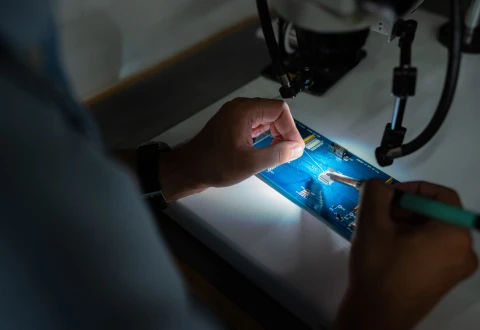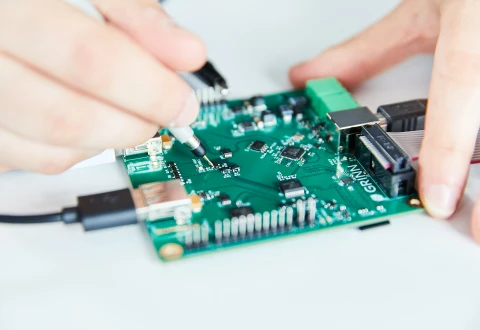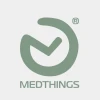In the pursuit of a sustainable and greener future, the Internet of Things (IoT) is emerging as a powerful tool for optimizing resource consumption and improving energy efficiency. By integrating IoT technologies into various sectors and applications, we can revolutionize how we manage and utilize energy resources. From smart grids and intelligent buildings to industrial processes and sustainable transportation, IoT is transforming the way we approach energy management. Let’s explore the transformative potential of IoT in enhancing energy efficiency, reducing carbon footprints, and paving the way for a more sustainable world.
Smart Grids: Empowering Energy Management
Imagine a world where electricity grids are intelligent, self-monitoring, and adaptive. This vision is becoming a reality through the implementation of IoT technologies in smart grids. By leveraging IoT sensors, meters, and real-time data analytics, smart grids optimize energy distribution, monitor usage patterns, and identify areas for improvement. Through advanced monitoring and control systems, utilities can effectively manage energy demand, minimize transmission losses, and enable dynamic pricing mechanisms to incentivize consumers for efficient energy consumption. With IoT, our electricity infrastructure becomes more flexible, reliable, and eco-friendly.
At Grinn we have developed a gateway for connected smart city lights, which gives the ability to to view the performance and cost of a single unit and the network as a whole.
Intelligent Buildings: Enhancing Energy Performance
Buildings are responsible for a significant portion of global energy consumption. However, IoT-enabled solutions are transforming traditional buildings into intelligent, energy-efficient structures. Through a network of smart sensors, connected devices, and automated controls, buildings can optimize lighting, heating, ventilation, and air conditioning (HVAC) systems. Real-time data analytics and machine learning algorithms help identify energy waste and enable smart buildings to adjust energy usage based on occupancy patterns, weather conditions, and user preferences. By seamlessly integrating IoT technologies, we can achieve significant energy savings, reduce greenhouse gas emissions, and create sustainable living and working spaces.
One of example of a perfect smart metering solution is Rhino. Rhino is an unique system of gateways and sensors that connects to your meters collecting the data 24/7 and giving you valuable insights on your costs, energy savings, and reduction of energy consumption. As a result Rhino’s clients are able to take sustainability actions, track consumption, detect malfunctions and achieve assumed financial goals. Learn more about Rhino smart metering solutions at https://rhino.energy/
Industrial IoT: Streamlining Energy-Intensive Processes
Industries are major energy consumers, but they also hold immense potential for energy efficiency improvements. IoT offers opportunities to optimize energy-intensive processes, reducing waste and improving efficiency. By connecting machinery, equipment, and systems, IoT enables real-time monitoring, predictive maintenance, and intelligent energy management. Smart factories equipped with IoT technologies can op timize production schedules, minimize idle time, and adapt energy usage based on demand fluctuations, leading to significant energy and cost savings. Through IoT, industries can contribute to a greener future while improving their bottom line.
You can check one of our latest project in predictive maintenance- Siana, which determines the condition of production machine and notifies you about the malfunction before the actual breakdown. Read more https://grinn-global.com/portfolio/siana/
Energy Monitoring and Home Automation: Empowering Consumers
In our journey towards a sustainable future, individual actions matter. IoT devices and home automation systems empower consumers to actively participate in energy conservation. Smart meters provide real-time energy usage insights, allowing homeowners to monitor and adjust their consumption habits accordingly. Connected appliances and automated systems optimize energy usage by turning off idle devices, adjusting temperature settings, and managing renewable energy sources. By promoting energy-conscious behaviors, IoT helps individuals make informed choices to reduce their ecological footprint. Furthermore, IoT-enabled demand response programs enable consumers to actively participate in load management, contributing to a more resilient and sustainable energy grid.
Sustainable Transportation: From Smart Cars to Smart Cities
Transportation is a significant contributor to carbon emissions and energy consumption. However, IoT plays a vital role in transforming transportation into a more sustainable ecosystem. Connected vehicles and intelligent traffic management systems optimize route planning, minimize congestion, and reduce fuel consumption. Electric vehicle charging infrastructure is integrated with IoT to optimize charging times and manage the grid's load, ensuring efficient utilization of renewable energy sources. Moreover, IoT-based smart city initiatives aim to create an interconnected transportation system that promotes multimodal transport, enhances public transit efficiency, and reduces overall energy consumption. Through IoT, we can reimagine transportation as a greener, more connected, and sustainable experience.
As the world faces the challenges of climate change and dwindling resources, IoT emerges as a transformative force in driving energy efficiency and sustainability. By leveraging IoT technologies across various domains, from smart grids to intelligent buildings, industrial processes, and sustainable transportation, we can optimize resource consumption, reduce carbon footprints, and build a greener future. Embracing the potential of IoT requires collaboration among stakeholders, including governments, industries, and individuals. Together, we can implement innovative solutions, foster technological advancements, and advocate for policies that promote energy efficiency. By harnessing the power of IoT, we have the opportunity to create a more sustainable and environmentally conscious world for generations to come.
 Kateryna Kozakova
Kateryna Kozakova






















